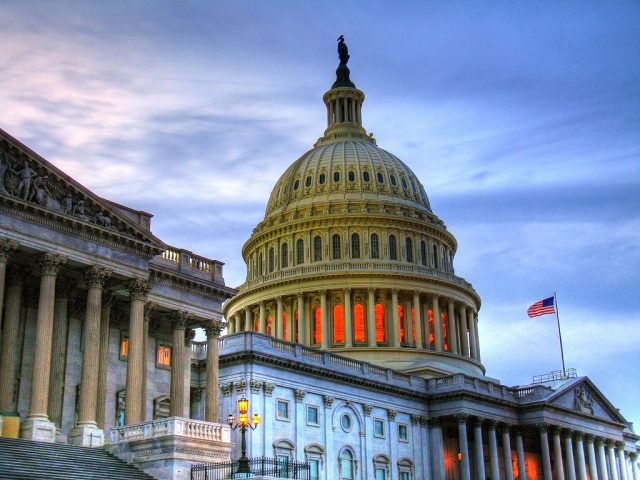
Two Congressmen want the nation’s top legislative body to explore how it might better use the Internet to conduct its business.
More specifically, two representatives from California and New Mexico introduced House Resolution 83 earlier this week that could eventually allow for considerable savings in time and money.
The bill as currently written notes that “there are recent advances in technology that would make a virtual Congress possible, such as: electronic voting, video conferencing, secure telephones and Internet connections, and biometric cyber security.”
The proposal is not without precedent. For 15 years, the Estonian parliament has allowed its cabinet-level ministers to vote on proposed measures online, using their chip-enabled national ID cards in its “e-Cabinet” system.
The Estonian government claims that implementing this system resulted in considerable time savings:
Once Estonia adopted its e-Cabinet system, the average length of the weekly cabinet meetings was cut from 4 to 5 hours to just 30 to 90 minutes. The government also eliminated the need to print and deliver thousands of pages of documents each week – a significant reduction in environmental impact, not to mention cost.
Because e-Cabinet uses web-based software and audio-visual equipment, ministers can take part remotely, and have often done so.
In the United States, the bar is being set a fair bit lower. For now, if passed, the bill would simply resolve that the House of Representatives:
(1) encourages the use of a virtual setting to implement hearings, conduct debate, meet, and vote;
(2) directs the Committee on House Administration to identify the best practices for conducting the business of the House of Representatives in a virtual setting; and
(3) directs the Committee on House Administration to establish procedures and rules for the consideration of legislation by Members of Congress in a virtual setting.
reader comments
99